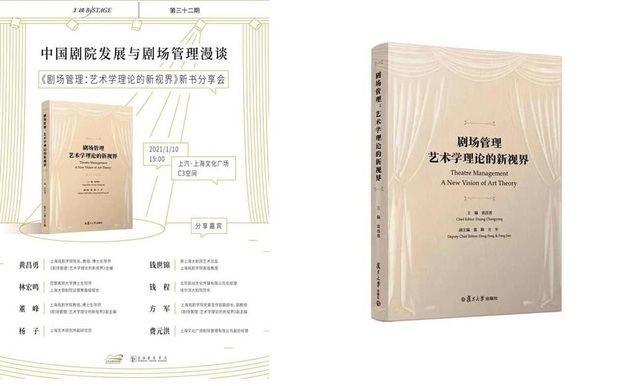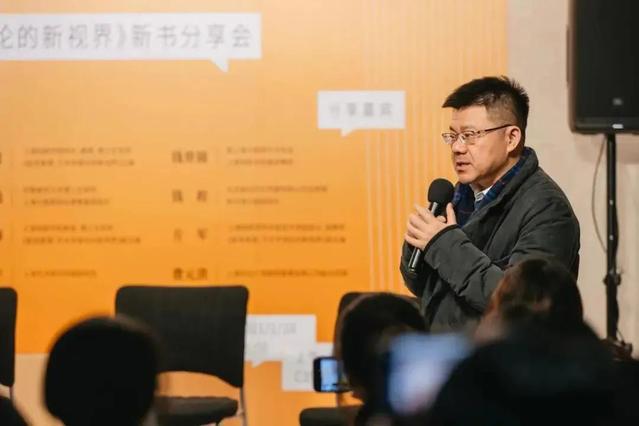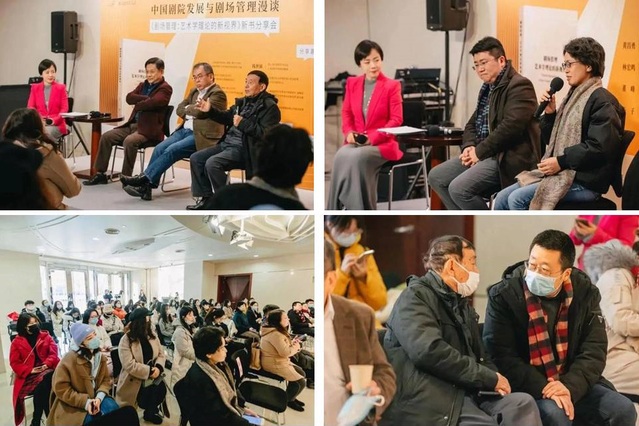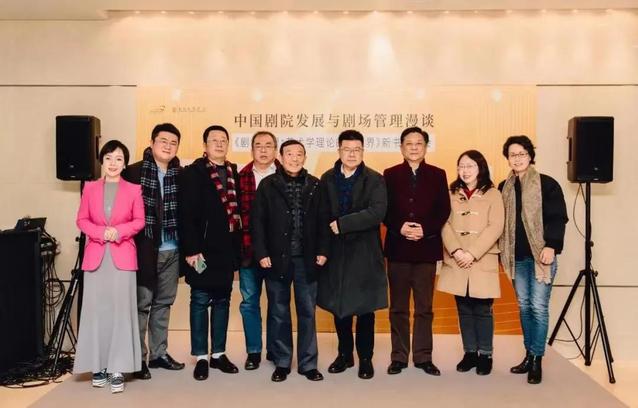In the middle of this month, the new book sharing session of “Theater Management: ANew Vision of Art Theory” was held in the SAIC Shanghai CultureSquare.

Since the reform and opening-up, the Shanghai Theatre Academy (STA) has actively expanded its academic territories and discipline directions, and cultivated many new research growth points, one of which can be collectively referred to as the management of playhouses, theatres and troupes. If further subdivided, there are three main directions in this field:
(1) The research on actors, opera houses, teaching workshops and troupes from the perspective of management;
(2) The research on modern playhouses, theaters and troupes from the perspective of management;
(3) The research on Chinese and foreign theatre market, performing arts ecology and art management.

These papers have been published in various academic journals. When they were compiled into a book, it was found that the Shanghai Theatre Academy has a long and profound history in the research in this field. The earliest paper included in the book was “A Brief Introduction to Theatre Operation” published in February 1989. For more than 30 years, the research in this field has not been interrupted at STA. The following events have played a significant role in enhancing the playhouse, theatre and troupe management at STA.
- 2003: STA successfully applied for the approval for the undergraduate major of public affairs management, and set up the relevant directions of culture and art management, community culture management, and art exhibition, creation and management in some colleges and departments respectively.
- 2006: STA was approved to be one of the first Chinese universities to award the Master of Fine Arts (MFA) degree, and set up the program of MFA Art Management.
- 2007: STA began to recruit MFA Art Management students.
- 2012: With the approval of the Shanghai Municipal Education Commission, the related directions under the original undergraduate major of public affairs management were integrated into the direction of art management for first-tier enrollment through the National Unified Examination for Admissions to General Universities and Colleges (the "Gaokao").
- 2017: (1) STA became one of the first two universities to successfully apply for the Ministry of Education's approval for the special undergraduate major of "art management"; (2) The Shanghai Municipal People's Government issued the “Several Opinions on Accelerating the Innovation and Development of Cultural and Creative Industries in Shanghai”, which clearly put forward the goal of building the "Capital of Performing Arts in Asia".
2018: Under the guidance of the Department of Policies and Regulations of the Ministry of Culture and Tourism, the Shanghai Theatre Academy and the National Centre for the Performing Arts jointly established the China Theatre Development Research Center.
- 2019: The “Art Management (Chinese and English)” magazine of the Shanghai Theatre Academy was launched; Relying on the China Theater Development Research Center, the Ministry of Culture and Tourism set up the "Culture and Tourism Research Base" in the Shanghai Theatre Academy.
In addition to the teachers and students of STA, a number of leaders in the management of theatres and troupes were also present at the new book sharing session. They are not only promoters, contributors and witnesses of the development of Shanghai’s theater industry, but also participants in the teaching activities of tertiary art institutions.

Mr Qian Shijin, who spoke as a guest of honor, once again talked about the story of Israeli music master Itzhak Perlman. In 1994, when he was invited to perform in Shanghai, at his meeting with the leaders of Shanghai, Perlman said frankly that Shanghai had the best music audience and the worst theater in the world.
27 years later, the embarrassment of theaters in Shanghai pointed out by Perlman has long been a history, and STA’s research on the management of theatres, theaters and troupes still has a long way to go.
